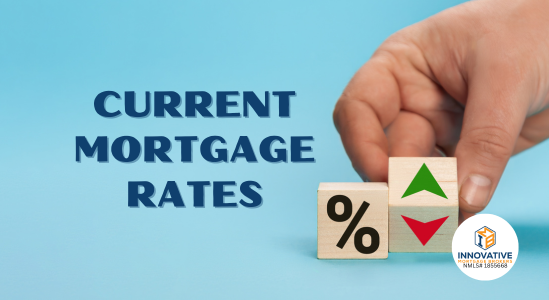Home Buying in Doylestown Doylestown, Pennsylvania (PA), offers a charming and vibrant lifestyle with its…
The Best Way to Manage your Money after Buying a Home
Buying a home is exciting, but it’s a big commitment too. So before jumping into homeownership, you should understand what it takes to manage your money after buying a home.
Of course, no two homeowners will use the same tactics or have the same budget, but these tips can prevent you from getting in over your head and being unable to afford your new mortgage.
Budget for all Housing Expenses
Many new homeowners don’t understand what homeownership means. Obviously, you buy a house, but there are many obligations after making your down payment and signing on the dotted lines.
Your budget should include enough room for all of your expenses as a new homeowner, including:
- Mortgage payment (principal, interest, real estate taxes, PMI, homeowner’s insurance, and HOA dues)
- Money for unexpected home repairs
- Money for home upgrades and furnishing
- Utility costs
Plan for Tax and Insurance Increases
Real estate taxes and homeowner’s insurance typically increase year. Even if you created an escrow account, you must make up for the increased amounts.
Each year your mortgage company will conduct an escrow analysis to determine the following year’s tax and insurance bill. If the bills increase, your mortgage payment will change accordingly, and the difference will be due.
If you don’t have an escrow account, you must save enough money to pay your insurance bill and taxes when due. The key is to save 1/12th of each bill monthly but consider saving slightly more should they increase.
Save a Large Emergency Fund
Next to budgeting, saving for an emergency fund is the next most important factor. When you own a home, you don’t have a landlord to call when something goes wrong. Instead, you’re in charge of all maintenance and repairs.
To handle the costs without putting yourself into debt, consider saving for an emergency fund. The average homeowner spends 1%+ of the home’s value on repairs annually. For example, if your home is worth $300,000, expect at least $3,000 in repairs each year on average.
It’s a good idea to save more than 1% to account for the unexpected, like a broken water heater, HVAC system, or plumbing issue.
Save Money for Mortgage Payments
Having an emergency fund with three to six months of your housing expenses is also a good idea. This ensures you have enough money to cover your bills for a few months if you lose your job or become ill and cannot work.
Consider saving not only three to six months of mortgage payments but also other living expenses, including:
- Medical insurance
- Utilities
- Basic food and clothing
- Transportation costs
- Kids’ costs
Make Extra Mortgage Payments
You might not consider making extra mortgage payments when buying a home, but it’s the best way to pay it off early.
Even an extra $100 a month can knock thousands of dollars in interest off your loan and shave a couple of years off the term.
As you create your budget, determine if you have any extra funds you can throw toward the mortgage payment. You can make the same additional payment monthly, periodically, or even once a year.
If you currently have PMI, paying your mortgage down faster may help you eliminate it sooner.
Avoid Excessive Debt
Try to avoid racking up a lot of debt after closing your mortgage. Even though you’re through the mortgage process and free to take out new debts, it’s not a sound financial decision.
If you borrow more loans, ensure they fit your budget and don’t rack up unnecessary debt, such as credit card debt. Limit what you charge to the amount you know you can pay in full monthly to avoid interest charges and getting into too much debt.
Budget for Home Improvements
Your home is an investment. Home improvements can help increase your home’s value, giving you an even greater return on your investment.
When you increase your home’s value, you can:
- Eliminate PMI when you owe less than 80% of the home’s value
- Have more equity to use for other purposes
- Earn more profits when you sell your home
Plan your Life Insurance Accordingly
Now that you’ve taken on the enormous responsibility of a mortgage, it’s crucial to have the proper protection in place, including life insurance.
If you died prematurely, you’d probably want your family to be able to live the lives they’re used to in the home they love. The right amount of life insurance to cover the mortgage and ensure your family’s security could be the best way to protect yourself.
Final Thoughts
Knowing how to manage your money after buying a home is essential. It can feel like a long road leading up to buying a home after making the down payment and getting approved, but the journey continues.
Your home is an investment and should take priority in your budget. Create a budget that fits your mortgage payment, emergency savings, and money to upgrade your home or handle unexpected repairs.
When you plan correctly to handle your finances after buying a house, you can have the best outcome, making homeownership a positive experience. Your home will build equity, and you can earn profits when you sell it down the road, but in the meantime, you can enjoy your fantastic new investment!
At Innovative Mortgage Brokers we understand that buying a home is a significant financial investment. That’s why our team is committed to helping you plan and budget accordingly to ensure that you are making a smart, informed decision.
Our loan officers will work with you to understand your unique financial situation, including your income, expenses, and long-term financial goals. We will help you explore different loan options, interest rates, and repayment terms, so you can make an informed decision about the right mortgage for you.
At Innovative Mortgage Brokers we’re not just here to help you find a mortgage. We’re also here to help you plan and budget appropriately for homeownership. We can provide guidance on factors like property taxes, insurance, and maintenance costs, so you have a clear understanding of what it takes to own a home and can plan accordingly.
Whether you’re a first-time homebuyer or an experienced real estate investor, if you need a mortgage in Pennsylvania or Florida, our team is here to help you make a smart, informed decision about your mortgage. Contact us today to learn more about how we can help you plan and budget accordingly when buying a home.





